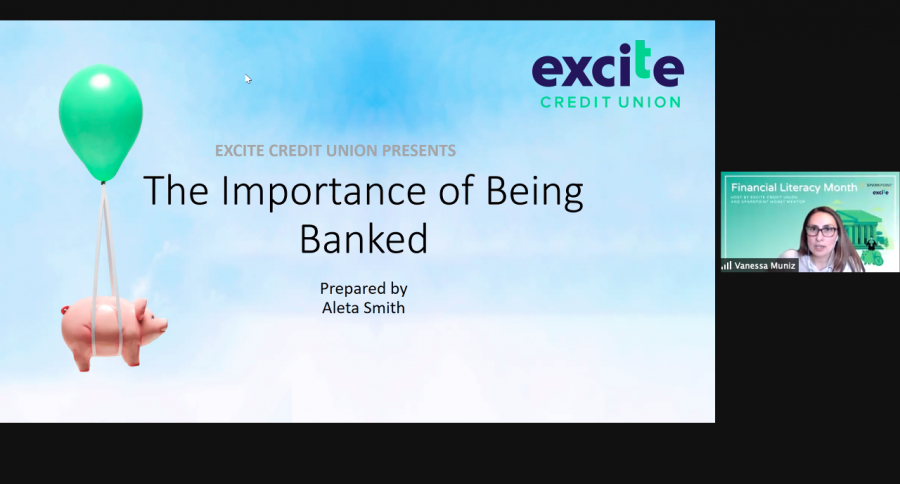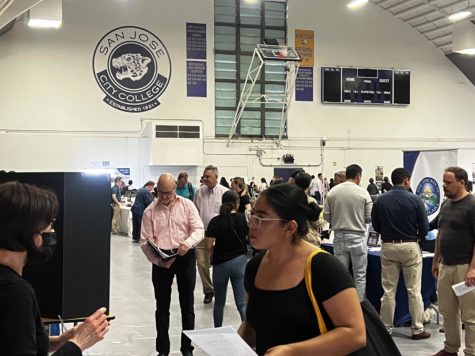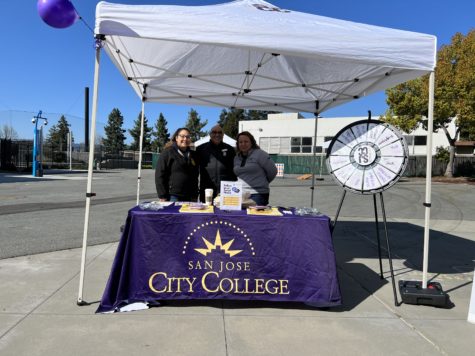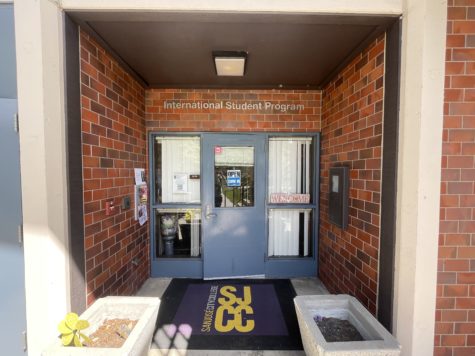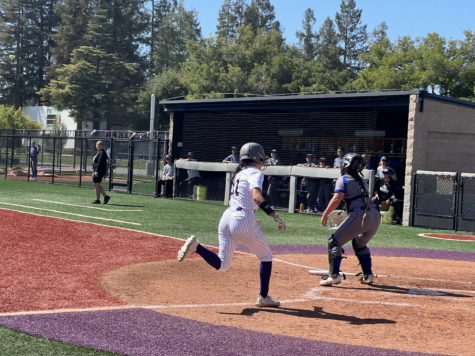Free workshop to help students save money
Excite Credit Union and money mentors gave step-by-step tips for financial literacy
Screenshot taken by Lidia Rocha / Times staff
Aleta Smith advised the audience to look out for fairly common fees in banking, including the monthly maintenance fees, overdraft fees and bounced check fees.
SparkPoint in collaboration with Excite Credit Union discussed banking tips and common banking mistakes in a Zoom conference Monday, April 26.
Aleta Smith, an employee of Excite Credit Union, presented the basics of being able to choose the right bank and the importance of being banked. There are three kinds of banks: commercial banks, credit unions and internet banking.
One rule Smith brings up is to make sure your bank has a Federal Deposit Insurance Corporation (FDIC), if you’re using a credit union note if it’s insured by National Credit Union Corporation. This is to ensure that your money up to $250,000 is taken care of if the bank you use goes under.
“If you have a checking account, it allows you easier access to your money,” Smith said. “ You get direct deposit, it helps you keep track of your transactions, and having your money insured. If you have (physical) cash, you lose it. It’s gone.”
Smith listed the benefits of having a checking account rather than being unbanked. Unbanked are those who do not use banks and instead prefer to use cash in all situations.
Smith touches upon the dangers of being an unbanked person such as not having your money insured and having to take time paying bills in person. However, Smith also recommends if you do choose to be banked to do your research.
“If you go with the first bank that you see, then you don’t know what else is out there. You want a few options,” Smith said. “Make sure you are comparing all the features, especially if there’s something specific that is important to you.”
Smith advises to do research on banks and make note of limits and minimum balances necessary to avoid fees. She also states that you shouldn’t feel forced to use a particular bank if you’re not comfortable and encouraged everyone to ask questions.
“When you go into a bank you want to know what to expect. Ask what are your monthly maintenance fees? What are your fees for bounced checks? What’s your overdraft fee?” Smith said.
Another piece of advice from Smith is to take care of your credit.
If you are someone with bad credit it can deter you from opening a bank account as banks do background checks on potential clients. In credit unions there are more exceptions as you may not be able to have a checking account, but may be eligible for other programs.
“It will play an important role in pretty much any and everything that you will do,” said Smith regarding credit. “From bank accounts, to trying to get a loan, to rental applications.”
Another system that Smith touched on were check systems. This system is commonly used, but not commonly known.
Check systems review your checking and savings accounts. Smith spoke about the fact that if something were to go wrong, you overdraft your account or have a bounced check, it will be reported to ChexSystems.
Once one is in this system, it will be there for five years, unless you do something to fix the issue. This is a very similar system as your credit, Smith said.
Smith advised the audience to look out for fairly common fees in banking, including the monthly maintenance fees, overdraft fees and bounced check fees.
“Monthly maintenance fees, if you can get around that learn how. overdraft fees are common because people tend to just swipe swipe swipe. Bounced checks, not everyone writes checks now, still those are the ones that add up the most.” Smith said. “I would say don’t get overdraft protection, that’s because they’re gonna charge you. Bringing revenue to the bank.”
Your donation will support the student journalists of San Jose City College. Your contribution will allow us to purchase equipment and cover our annual website hosting costs.

